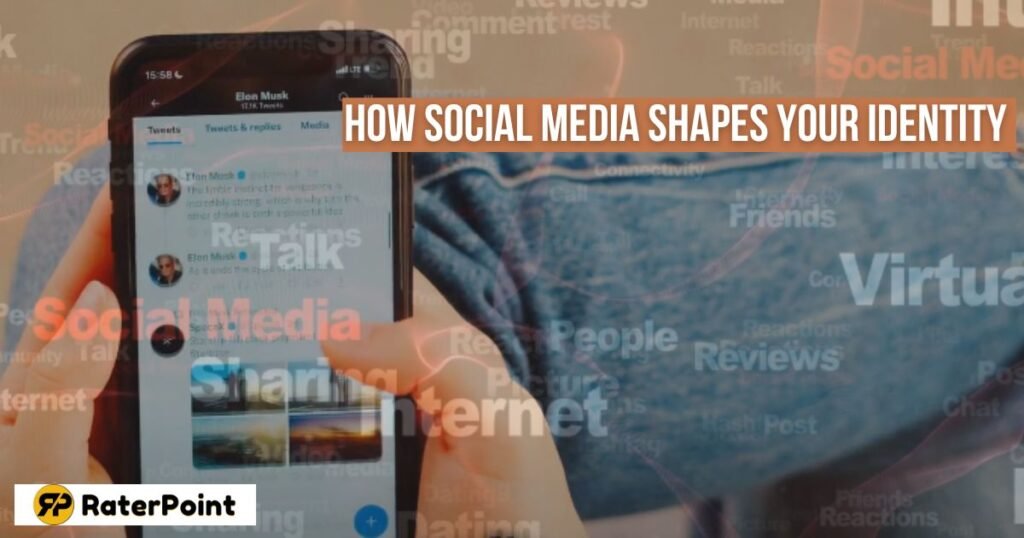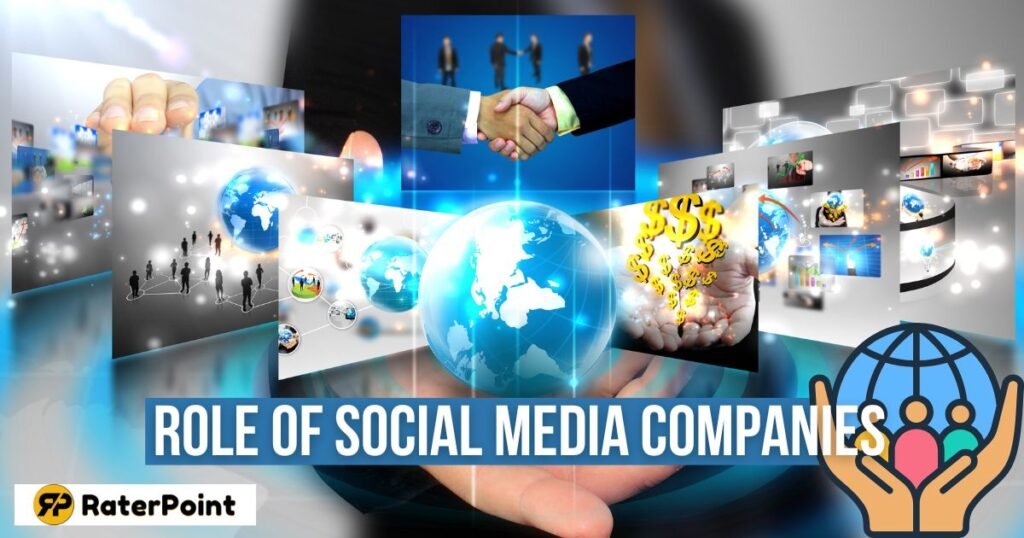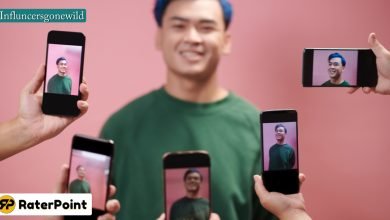How Can Social Media Control Your Life?

Social media links billions of people daily and has taken center stage in our lives. Social media sites like Facebook, Instagram, and TikTok have changed how we express ourselves, communicate, and learn. Beyond joining and filters, however, there is a growing question we must ask ourselves: do we control social media, or does it control us?
This blog explores how social media shapes your identity, emotions, and choices. We’ll explore its effects on productivity and mental health and provide feasible ways to regain control.
In this post, we will learn about How Can Social Media Control Your Life.
The Ubiquity of Social Media
How Social Media Has Become a Part of Everyday Life
Over 4.8 billion people use social media globally, spending an average of 2.5 hours daily. Scrolling through newsfeeds, creating videos, and liking posts have become everyday habits.
Yet this isn’t by accident. Social media platforms are designed to keep us hooked. Features like notifications, infinite scrolling, and algorithm-driven content aim for one thing—your attention. The more time you spend on their platforms, the more profits roll in for them. It’s no wonder stepping away feels so hard.
Also Read: How to Turn Off Auto Scroll on Instagram
Why We Turn to Social Media
What makes social media so irresistible? There’s psychology at play. It fulfills basic human needs like connection, validation, and entertainment.
- Connection: Chatting with friends or sharing life updates gives us a sense of belonging.
- Validation: Likes, comments, and shares offer instant gratification, boosting our confidence.
- Entertainment: Endless videos, memes, and trending content are tailored to our preferences.
Algorithms are key here. They analyze our online behavior to deliver content that aligns perfectly with our tastes. This creates a habit loop that’s tough to break.
The Negative Impacts of Social Media
Social Media and Mental Health
Social media brings us together, yet it may also lead to unease. Platforms tend to be overrun with carefully chosen images and success tales. Unhealthy comparisons result from this.
Feelings of inadequacy might arise when one watches the vacations, professional advancements, and picture-perfect lives of others. Excessive use of social media has been connected in studies to sadness, anxiety, and low self-esteem, particularly among teens and young adults.
Social media’s highlight reel often deviates significantly from reality, yet it affects how we view ourselves.
Also Read: How to Block Spam Comments on Facebook?
The Influence on Decision-Making
Social media doesn’t just affect your emotions; it also influences your choices. From buying decisions to personal beliefs, its impact is significant.
- Ads and Influencer Marketing: Scrolling through your feed, you’re subtly exposed to ads and influencer endorsements. These can persuade you to buy products you didn’t even know you wanted.
- Shaping Beliefs: Trending opinions, viral videos, and comment sections can sway how you view world issues. Groupthink on these platforms often replaces independent thought.
Every click or view further directs you into a personalized content bubble, influencing your beliefs and actions.
The Time Trap
Social media is a significant time drain. A quick five-minute glance can quickly turn into an hour of mindless scrolling.
This affects your productivity, your work, and even your relationships. How many tasks have been undone because of “just one more scroll”? Beyond work-related disruptions, this creates a ripple effect, reducing time spent engaging with loved ones or pursuing hobbies.
How Social Media Shapes Your Identity

The Concept of Digital Personas
Most people present polished, idealized versions of their lives on social media. The “you” online may not reflect your true self.
The pressure to post flawless selfies or celebrate achievements builds over time. Chasing likes and shares can push you to create content that aligns more with trends than personal authenticity.
The Fear of Missing Out (FOMO)
FOMO’s fear of missing out is a feeling you probably know too well. Social media showcases events, travels, and opportunities you aren’t part of, sparking anxiety.
Posts about concerts, travel deals, or achievements amplify this fear. You constantly check your feed, afraid you’ll “miss something.” This cycle can cause stress and lead to compulsive behavior.
Steps to Regain Control Over Your Life
Understand Your Usage
The first step in controlling social media is awareness. Track your screen time using Digital Wellbeing (Android) or Screen Time (iOS). Platforms like Instagram even have built-in tools to monitor time spent on the app.
Seeing how much time you spend can be eye-opening. It gives you the foundation to make intentional changes.
Set Boundaries
Start by setting limits. Designate specific times to check social media—like 15 minutes after lunch.
Additionally, try creating phone-free zones in your home, like the bedroom or dining area. These small boundaries reduce distractions and help you focus on real-world connections.
For a more significant reset, consider a digital detox. Take a break from all platforms for a weekend, or even just one day, and notice how it feels.
Focus on Real-Life Connections
Social media tends to replace authentic connections with shallow interactions. Take time to nurture your in-person relationships.
Plan coffee dates, join hobby-based clubs, or call friends instead of messaging them. Finding joy in offline activities helps lessen social media’s grip on your life.
Role of Social Media Companies

Ethical Concerns About Social Media Algorithms
Most social platforms prioritize engagement over user well-being. Algorithms are tuned to show content that keeps you online longer, with little regard for mental health.
While companies like Instagram have added features to reduce harm (e.g., hiding likes), many still ignore broader concerns. Transparency from platforms is key to change.
What Users Can Demand
Users hold power, too. Demand better privacy, screen-time management tools, and algorithm transparency from platforms. The more people voice these concerns, the more likely companies are to act.
Take Control One Step at a Time
Social media is a powerful tool, but it shouldn’t control your life. You can regain control by understanding its influence and taking small steps to limit its impact.
Be intentional. Set boundaries. Focus on meaningful offline relationships. The power is in your hands, not the algorithms.
Start today. Track your screen time, take a digital detox, or spend an hour with someone you care about. It’s time to take back control of your time and your life.
Conclusion
Social media can subtly and powerfully shape your thoughts, habits, and emotions. It influences how you spend time, connect with others, and view yourself. Without limits, it can harm your mental health and reduce real-life experiences.
Awareness of these effects helps you make better choices and set boundaries. Remember, you control social media—it shouldn’t control you. Take small, consistent steps to use it positively and protect your well-being.
FAQs
How does social media control our life?
Social media controls life by influencing your thoughts, emotions, and daily habits. It keeps you constantly engaged through notifications, likes, and shares. This can lead to overuse and reduce quality time spent on meaningful relationships and activities.
How does social media affect your life?
Social media affects life by shaping self-esteem, productivity, and emotional well-being. It encourages comparison and creates pressure for perfection. Overuse can impact mental health and physical activities, reducing the focus on personal growth and real-world connections.
How can social media change your life?
Social media changes life by connecting you globally but can also create stress. It introduces endless information and trends. Overused may shift priorities and limit personal interactions, impacting your focus on long-term goals and happiness.
How can we control ourselves in using social media?
Control social media by setting time limits and prioritizing real-life connections. Stay mindful of your use. Disable unnecessary notifications to reduce exposure. Engage only in positive, helpful content to protect your mental health and remain focused.

